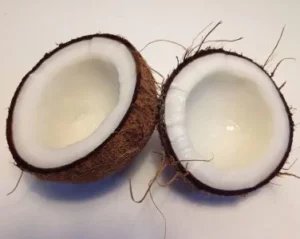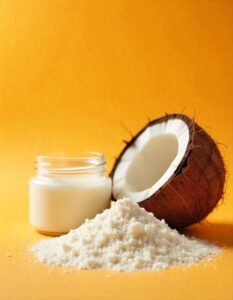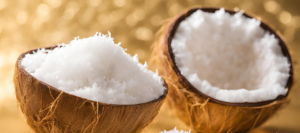Environmental Impacts and Benefits of Coconut Products: Why Choosing Coconut is Good for the Planet
As the world turns its focus toward sustainability and eco-friendly practices, businesses and consumers alike are making choices that reflect their desire to reduce their environmental footprint. Among the vast array of natural products available, the humble coconut stands out as an environmentally friendly resource with immense potential. In fact, coconut-based products are not only beneficial for personal health but also offer a greener, more sustainable alternative to many traditional goods. At Grofarm uG, we are proud to import mature coconuts and coconut byproducts into Europe, offering a wide range of environmentally friendly products to wholesalers, importers, and supermarkets.
In this blog, we’ll explore the environmental impacts of coconut products and highlight 10 key benefits of incorporating them into your business or everyday life.
The Sustainability of Coconut Farming
One of the most compelling reasons to invest in coconut products is the sustainability of coconut farming itself. Coconuts, predominantly grown in tropical regions such as Southeast Asia, Latin America, and Africa, are cultivated in areas where the trees thrive naturally. Coconut trees (Cocos nucifera) are incredibly versatile and resource-efficient plants, offering numerous environmental advantages:
1. Minimal Water Usage: Coconut trees are naturally drought-resistant and require much less water compared to other crops, such as almonds or soybeans. This makes them an ideal crop for regions where water scarcity is a growing concern.
2. Sequestering Carbon: Coconut trees absorb significant amounts of carbon dioxide from the atmosphere, making them an important player in the global effort to combat climate change. They are known to sequester carbon in both their trunks and leaves, contributing to carbon storage over their long lifespan (which can be up to 70 years).
3. No Deforestation: Unlike many other agricultural products, coconut farming rarely contributes to deforestation. In fact, coconut trees are often intercropped with other species, which helps preserve biodiversity in tropical ecosystems. Coconut plantations do not require clearing large swathes of forested land, and they can thrive in coastal and rural areas without causing habitat destruction.
4. Soil Preservation: Coconut trees have extensive root systems that help to prevent soil erosion, especially in coastal areas. Their roots hold the soil together, protecting the land from degradation caused by wind and water. This makes coconut plantations ideal for stabilizing ecosystems and reducing land loss.
The Environmental Impact of Coconut-Based Products
The environmental benefits of coconut farming extend into the production and use of coconut-based products. From food and beverages to beauty and personal care items, the versatility of coconut products ensures that little goes to waste. Below are some of the most eco-friendly coconut byproducts and their environmental impact:
1. Coconut Oil: Coconut oil is one of the most popular products derived from coconuts. Not only is it a healthy cooking oil alternative, but its production process is relatively low-impact. Cold-pressed virgin coconut oil, for instance, requires minimal processing, meaning less energy consumption and fewer emissions compared to other oils, such as palm or soybean oil.
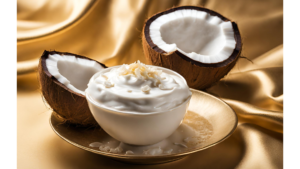
2. Coconut Milk and Water: Coconut milk and coconut water are both naturally derived, making them sustainable alternatives to dairy and artificial beverages.Coconut water is especially appealing for its low energy requirements during production. It is collected directly from the fruit with little processing, packaging, or transportation impacts.
3. Coconut Shell and Husk Products: The coconut shell and husk, often considered waste products, can be repurposed into a variety of eco-friendly products. For example, coconut shells can be used to make activated charcoal, which is commonly used in water filtration systems and natural beauty products. The husks can be turned into natural fiber (coir), which is used to create biodegradable mats, ropes, and brushes.
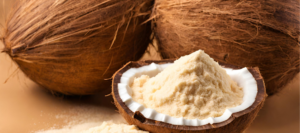
4. Coconut Flour: A gluten-free alternative to traditional flours, coconut flour is made from dried coconut meat. Since it is a byproduct of coconut milk production, it helps reduce overall waste in the coconut processing chain. Coconut flour also has a longer shelf life than wheat flour, which means less spoilage and waste.
5. Coconut-Based Beauty and Personal Care Products: Many personal care products, including shampoos, lotions, and soaps, incorporate coconut oil or coconut water as a key ingredient. These natural ingredients are biodegradable and free from harmful chemicals, reducing the environmental burden compared to synthetic alternatives.
The 10 Benefits of Using Coconut Products
As a business or consumer interested in sustainable, eco-friendly products, there are numerous reasons to choose coconut-based goods. Here are 10 compelling benefits of using coconut products:
- Eco-Friendly Sourcing: Coconuts are naturally abundant in tropical regions, and their production does not require environmentally harmful practices such as deforestation or excessive water usage. Choosing coconut products helps support sustainable agriculture.
- Low Carbon Footprint: Coconut trees act as carbon sinks, absorbing CO2 from the atmosphere. Additionally, coconut products generally have lower carbon footprints compared to other agricultural products due to minimal processing and natural growth conditions.
- Minimal Waste: Almost every part of the coconut can be used, from the water and meat to the shell and husk. This makes coconut farming a zero-waste practice, significantly reducing the environmental impact of discarded materials.
- Health Benefits: Coconut-based food products, such as coconut oil, coconut flour, and coconut water, offer numerous health benefits. They are high in essential nutrients, antioxidants, and healthy fats, making them a popular choice for health-conscious consumers.
- Biodegradable: Many coconut-based products, particularly those made from the husk and shell, are biodegradable. This reduces the long-term environmental impact of plastics and synthetic materials, making it an ideal choice for eco-conscious consumers and businesses.
- Versatile Applications: Coconuts are an incredibly versatile resource. From food and beverages to skincare, household items, and industrial materials, coconut products can replace environmentally damaging alternatives, creating a greener future across various industries.
- Sustainable Livelihoods: Coconut farming supports millions of smallholder farmers in tropical countries. By purchasing coconut products, businesses and consumers contribute to sustainable development and fair-trade practices in developing regions.
- Water Conservation: Coconuts require significantly less water to grow compared to other high-demand crops. In an age of increasing water scarcity, choosing products that come from water-efficient crops is an important step toward sustainability.
- Supporting Biodiversity: Coconut farms can coexist with other plants and crops, promoting biodiversity and reducing the monoculture problem. This helps to preserve natural habitats and supports healthier ecosystems.
- Natural & Chemical-Free: Coconut products are free from harmful pesticides, synthetic chemicals, and additives commonly found in other agricultural products. This not only makes them safer for consumers but also reduces the environmental burden of chemical pollution.
Choosing Coconut for a Sustainable Future
As businesses and consumers, our choices have a profound impact on the environment. By opting for coconut products, we can contribute to a more sustainable, eco-friendly future. At Grofarm uG, we are dedicated to providing high-quality coconut products that align with environmentally conscious values. From coconut oil and flour to natural fiber and water, the products we import offer numerous benefits that make them ideal for wholesale, retail, and supermarket distribution.
When you choose coconut products, you’re not just making a healthy and versatile choice for your business or home—you’re also supporting a sustainable agricultural practice that benefits the planet. We encourage wholesalers, importers, and supermarkets to explore the wide range of coconut products we offer, and to embrace the environmental benefits they bring.
Conclusion
In a world where environmental sustainability is increasingly important, coconut products stand out as a natural, eco-friendly solution. From their minimal impact on water and soil to their versatility and waste-reduction potential, coconuts offer a sustainable choice for businesses and consumers alike. By integrating coconut products into your supply chain or daily life, you’re making a positive contribution to the planet while enjoying the numerous health and practical benefits these products provide.
At Grofarm uG, we are committed to bringing the best coconut products to the European market, empowering businesses to make sustainable, environmentally sound choices. Explore our range of products today and join us in shaping a greener, more sustainable future.

